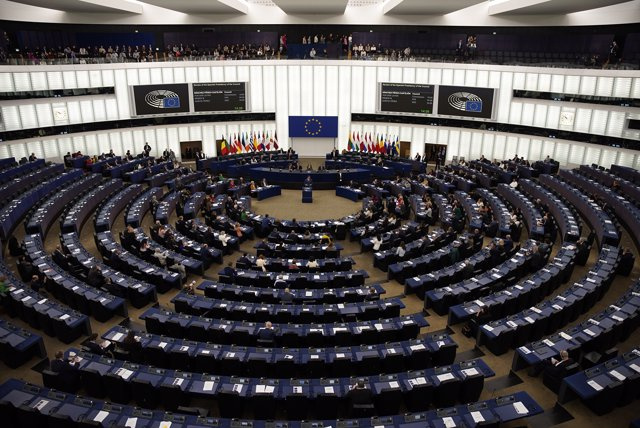MADRID, 13 Dic. (EUROPA PRESS) -
The Spanish Presidency of the Council of the European Union has managed to reach an agreement with the European Parliament in Strasbourg for a future directive on workers on digital platforms, which will improve their working conditions and social protection in all the countries of the European Union, has The Ministry of Labor and Social Economy reported this Wednesday.
The new European directive, finalized this morning after more than 12 hours of negotiations, provides that Member States have administrative or judicial procedures to classify those who work on digital platforms as employed workers.
They must meet at least two indicators of employment to be considered as employed workers, for example, when the circumstance arises that the platform is the one that determines their remuneration or the platform is the one that controls the performance of the professional activity.
The agreed directive also provides for sanctions for platforms that fail to comply with the provisions, as well as administrative and judicial procedures available to workers who are considered misclassified.
Likewise, it will be the platform that must prove whether a worker is employed or self-employed.
Labor has highlighted in a statement that, with the directive, it is also possible to reinforce the transparency and human control of the automated supervision and decision-making systems through algorithms used by digital platforms, while recognizing the rights of workers and their representatives.
The new regulations will prevent platforms from using automated monitoring and decision-making systems on the emotional state of workers and their private conversations, as well as their biometric data.
Any decision to terminate, restrict or suspend an employment relationship with a worker cannot be made based on an algorithm, according to Labor.
Workers' representatives will have access to complete and detailed information on the automated supervision and decision-making systems used by the platform. In addition, they will have to be consulted when changes are made to these systems.
The provisional agreement reached in the early hours of today in talks between the Council, Parliament and the Commission will be put to a new test on December 20, when it is presented for ratification by the permanent ambassadors of the 27 Member States to the EU and by the plenary session of the European Parliament.
"This proposal, which has been inspired by the Spanish Rider Law, represents a great advance for women and men who work on digital platforms. If the Council of the European Union ratifies it next week, it will mean that these workers will have more rights, especially those who have until now been wrongly considered autonomous, because they will have better labor and social protection," said the second vice president and Minister of Labor, Yolanda Díaz.
This directive will be the first at an international level and 'baby' of the Spanish law on workers on delivery platforms approved in 2021. This standard, a pioneer in Europe, presumes these workers to be employees and, according to estimates by the European Commission, the new directive inspired by it could affect some 5.5 million people who are erroneously classified as self-employed in the European Union.
Currently, more than 28 million people in the EU work in one of the nearly 500 digital platforms of all types (delivery, transportation, etc.) that operate in the 27 countries of the bloc.
According to European Union estimates, in two years the number of workers will rise to 43 million.













